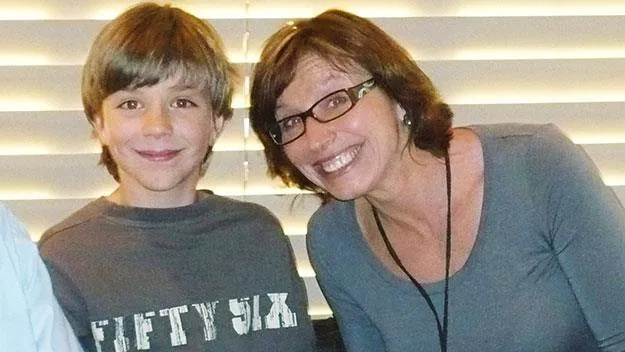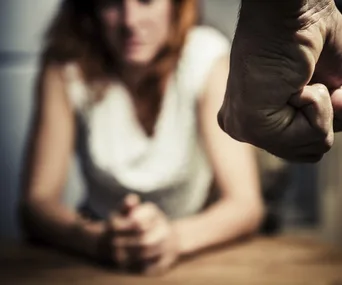When Luke Batty was murdered by his father, Rosie Batty made sure people sat up and took notice.
In her very first press conference, she asserted that domestic violence doesn’t discriminate.
“I want to tell everybody that family violence happens to everybody, no matter how nice your house is, no matter how intelligent you are,” she told the assembled press.
And people did listen. Media coverage of the issue increased exponentially, domestic violence became a major part of political discourse, and the public pushed for change.

Luke and Rosie Batty.
Following the push, large amounts were pledged to combat the abuse in the home, including $100 million from the Coalition dedicated to men’s behaviour change programs and $103 million from Labor for Safe at Home grants.
But work still needs to be done.
Shocking figures reveal that an average of one woman per week is murdered by a partner or former partner. Domestic violence victims need long term plans.
Last year, NSW Domestic Violence CEO Moo Baulch told HuffPost federal funding needs to be on the same level as the Victorian Government who committed $572 million to fund domestic violence services and initiatives.
“If we’re serious about tackling domestic violence we need a long term plan and the Federal Government needs to lead on this,” Baulch said.
Post continues below.
The Fair Work Commission recently rejected a bid to make domestic violence leave a minimum standard for all workers and The Greens are unimpressed.
“The Australian Greens have been calling for 10 days of paid domestic violence leave for years, so we’re disappointed by the Fair Work Commission’s decision.,” said Deputy Leader and spokesperson for women, Senator Larissa Waters.
“We won’t stop pushing for paid domestic violence leave.”
Paid leave is essential because money is regularly the reason women are forced to stay in abusive relationships.
“For women to maintain their economic independence and give them the best chance of escaping from a violent situation, they need access to paid leave,” Senator Waters said.
“Paid domestic violence leave would allow employees to take time off work to attend court hearings, counselling, medical or legal appointments and find safe housing, whilst keeping employment.
“Raising awareness of domestic violence is commendable but we must also ensure the safety net available for the people we encourage to leave dangerous situations is robust as possible”.
In the Northern Territory, the number of businesses offering domestic violence leave is growing, even without legislation.
At least 22 organisations now include a class of policy for DV leave, including YWCA, Darwin.
“We make it very clear when people join us as staff that that is available to them and that it is kept confidential,” YWCA chief executive Jessica Watkinson said.
With domestic violence murder cases taking years to work through in most cases, getting accurate data on the number of victims is practically impossible.
However, the Australian Bureau of Statistics shows that in 2015, (excluding Tasmania and ACT) 158 people were murdered by a loved one in Australia.
Unsurprisingly, the stats also confirm a significant gender imbalance in the domestic violence sphere.
Women are assaulted by a partner or family member at almost twice the rate of strangers, whereas men are five times as likely to be assaulted by a male stranger than their spouse.
It may not be election time, but domestic violence still has devastating effects on Australian women and politicians should be intervening.



